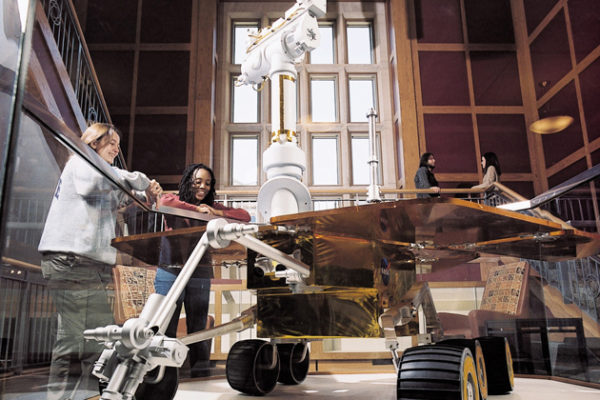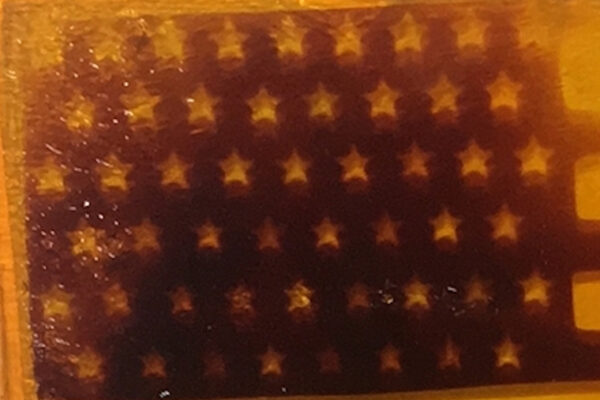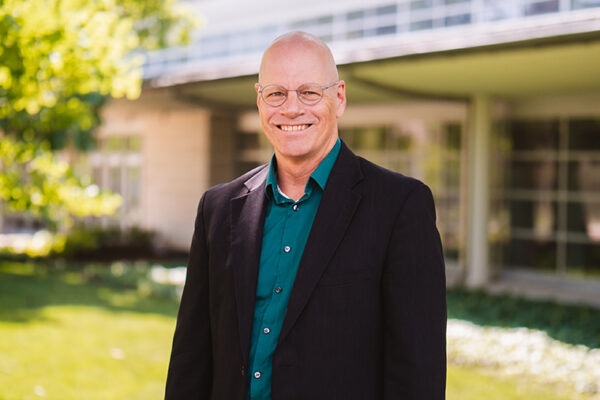Straight from the source
Arpita Bose, assistant professor of biology in Arts & Sciences, has published new work that reveals how one kind of bacteria “eats” electricity by pulling in electrons straight from an electrode source. The research is published Nov. 5 in mBio.
Kip Thorne explores the ‘warped side’ of the universe
Nobel laureate Kip Thorne will visit Washington University to deliver a public talk on Thursday, Nov. 7. Thorne’s work in theoretical physics examines gravitational waves, the Big Bang and what these phenomena tell us about the dynamics of the universe.
Arvidson, rover team recognized by National Space Club
The team that worked on the Mars exploration rovers Spirit and Opportunity received the Distinguished Science Award from the Huntsville, Ala., chapter of the National Space Club. The award recognizes outstanding contributions in research and discovery that expand knowledge and understanding of space. Raymond Arvidson, the James S. McDonnell Distinguished University Professor in Arts & Sciences, is the mission’s deputy principal investigator.
A positive approach to school safety
Policy responses to school shootings have not prevented them from happening more frequently, but restorative justice has the potential to avert bad behavior and school shootings, finds a new study from Washington University in St. Louis.
Which came first: brain size or drinking propensity?
Contrary to the belief that drinking can literally shrink one’s brain, a new study that includes researchers from Arts & Sciences suggests that a small brain might be a risk factor for heavier alcohol consumption.
New photo-responsive hydrogels developed with eye on biomedical applications
Researchers in Jonathan Barnes’ laboratory in Arts & Sciences have developed a new light-sensitive hydrogel with improved biocompatibility compared with similar materials. Down the line, these materials may be particularly suited for medical uses like prosthetics or transplantable organs.
Moeller recognized for excellence in organic chemistry
Kevin Moeller, professor of chemistry in Arts & Sciences, will receive a 2020 Arthur C. Cope Scholar Award for excellence in organic chemistry. The Cope Scholar Award is a national award sponsored by the Arthur C. Cope Fund and administered by the American Chemical Society. Only 10 recipients each year receive the award.
Longer Life Foundation awards grants to 10 researchers
Ten researchers at Washington University in St. Louis have received funding from the Longer Life Foundation, a cooperative effort between the School of Medicine and the Reinsurance Group of America (RGA). The grants help junior investigators launch research projects and assist more established researchers as they extend their investigations into new areas.
WashU Expert: This year, let’s make standard time permanent
A Washington University in St. Louis expert on circadian rhythms says the country should be on standard time permanently. The science behind the choice is clear: standard time is better in terms of sleep, cardiac function, weight, cancer risk and alcohol and tobacco consumption.
‘She gets to be who she is’
With her pink suits, chippy chihuahua and Greek chorus of sorority sisters, Elle Woods seems to have it all. But when her well-bred boyfriend, Warner Huntington III, leaves UCLA for Harvard Law, Elle’s dreams for the future come crashing down. So begins “Legally Blonde,” a musical adaptation of the 2001 film, which explores themes of personal identity, social expectations and what it means to be authentic.
View More Stories









